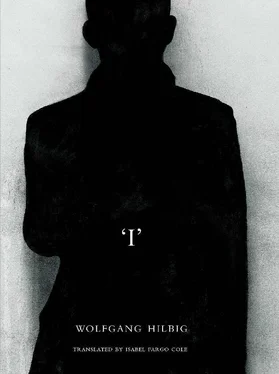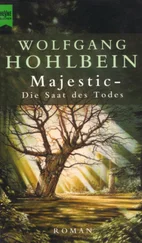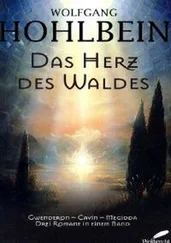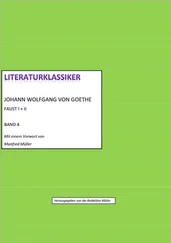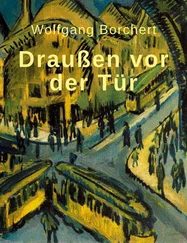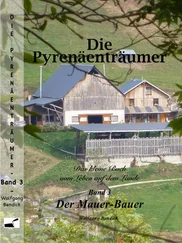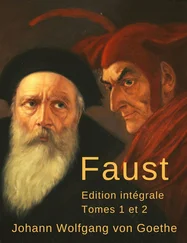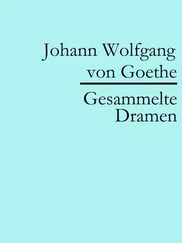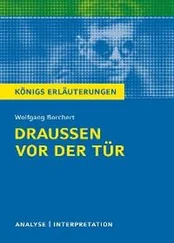With its richness and scope, since its first publication, Hilbig’s ‘ I ’ has only gained resonance as a universal parable of state power and paranoia, the structures of surveillance and secrecy in the individual psyche and society as a whole.
Wolfang Hilbig: Biography
Wolfgang Hilbig was born in 1941 in Meuselwitz near Leipzig. The town’s tunnel-ridden forest, open-cast mines and decrepit factories would haunt his work. His father was lost in the Battle of Stalingrad; he was raised by his mother and grandparents. As a young man (nicknamed ‘Kaschi’ after his Polish-born grandfather Kaszimier, a key father figure),13 Hilbig was known mainly as a boxer and gymnast. But early on, he began reading his way through the well-stocked town library, fascinated by Poe and the German Romantics, writing and sharing stories at a young age.14 This made him ‘an outsider in his own family’, especially for his illiterate grandfather. He invested his first pay cheque, as an apprentice lathe operator, in the works of E. T. A. Hoffmann. During his military service, his scathing letters home first attracted the attention of the Stasi.15
Back in Meuselwitz, Hilbig worked in the factories, notably as a stoker. Superficially, he exemplified the type of the ‘worker-writer’ which the GDR sought to foster. In 1964, his factory delegated him to the local Railroad Workers’ Literary Working Group satirized in ‘ I ’, but his work was rejected as too negative and wilfully obscure and he was ultimately expelled. Besides, as he later claimed, he was the only real writer and real worker in the group.16 He had better luck in Leipzig’s budding alternative scene, where he met like-minded young writers such as Siegmar Faust and Gert Neumann.17 Faust was astounded by Hilbig’s knowledge of Western literature; ‘the riddle was solved when Hilbig took work leave to attend the next Leipzig Book Fair, spending days hanging around the West German stands and copying poems out of books.’18 Western music, such as Jimi Hendrix and Bob Dylan, was another shared enthusiasm.19
For years, Hilbig travelled between Leipzig and his job in Meuselwitz. In the boiler room, he had the time and seclusion to write, producing poems and short prose pieces. The figure of the isolated stoker and the tension between the ‘worker’ and the ‘writer’ would pervade his work, which at that time remained unpublishable. In 1968, he placed an audacious ‘personal ad’ in the GDR’s main literary journal, Neue Deutsche Literatur : ‘Which German-language publisher would like to publish my poems? Serious offers only. .’20
The answer came nearly 10 years later. In 1976, Faust moved to West Germany, and, at first without Hilbig’s knowledge, had several of his poems published, drawing the attention of the prestigious S. Fischer Verlag. Fischer published Hilbig’s first poetry collection, abwesenheit , in 1979, followed by further collections and novels. Hilbig’s Western publications led to increased Stasi harassment. In 1978, he spent two months in prison on false charges of having burnt the GDR flag from the Meuselwitz town hall. There he was pressured to collaborate with the Stasi and provide information on his contacts; he refused.21 In 1979, he was fined 2,000 DM for a ‘currency offence’ in connection with the West German publication of abwesenheit .22
In a bold speech from 1980, the eminent East German writer Franz Fühmann (1922–84) lauded Hilbig as an example of a whole generation of ‘absent’ writers silenced in their homeland.23 Like Christa Wolf, Fühmann strove to criticize and reform the system from within, and he championed young nonconformists.24 In Hilbig, Fühmann saw a kindred spirit: an heir to the Romantics and Rimbaud, a truth-teller, a rebel against socialist realism. Hilbig continued to rebel; in 1981, he wrote an open letter to the deputy minister of culture: ‘I belong to a generation that will no longer let itself be censored.’25 Under Fühmann’s patronage, Hilbig published his first and only poetry collection in the GDR, stimme stimme , in 1983.
Hilbig’s position in the GDR became increasingly untenable. At last, in 1985, he was allowed to travel to the West to take advantage of the increasing offers of literary prizes, fellowships and readings. But he was a stranger in the West, alienated by consumer society and cut off from his roots; his ever-present drinking problems assumed alarming proportions. He travelled back and forth, torn between East and West, a period of his life reflected in his last novel, Das Provisorium (2000).26 In 1988, he settled in the town of Edenkoben with the writer Natascha Wodin; they were married from 1994 to 2002. Like all his intimate relationships, it was a difficult one. ‘He didn’t want to live, he only wanted to write. Life was a nuisance for him,’ Wodin recalled.27 For Hilbig, writing was a compulsion, always fraught with feelings of guilt: in writing, he abandoned others, especially his social peers — the ‘workers’—and his friends and family. The inability to cope with intimacy was a recurring theme in his life; he had a distant relationship with his only child, Constanze, born during a 1979–82 Berlin sojourn with journalist Margret Franzlik.28
In 1994, he and Wodin moved to reunited Berlin, settling in still-bohemian Prenzlauer Berg. Here too, Hilbig never felt truly at home. While his work continued to explore the dark landscape of the GDR, his public statements on Western media society and the shortcomings of reunification were scathing. Hilbig commanded too much respect, however, to be written off as a mere provocateur. He addressed the conflicts of his East — Western existence with an integrity and intensity which made him one of Germany’s most important writers. In 2002, Hilbig was awarded the Büchner Prize, Germany’s most prestigious literary award, for his life’s work. But his powers were already ebbing; his last major work, the story collection Der Schlaf der Gerechten (The Sleep of the Righteous) appeared that same year. He died after a long struggle with cancer in 2007. Since his death, the radical outsider has become canonized, with Fischer Verlag releasing a definitive edition of his works, and his papers archived at the Berlin Academy of the Arts.
.
.
***
I met Hilbig several times at readings in Berlin. He was a visibly awkward reader. Once he played the provocateur at a podium discussion, interrupting a highly theoretical discussion with the passionately stammered interjection: ‘But the main thing is imagination !’ He had a warm, avuncular aura, a kindly smile on his battered face, no trace of standoffishness — and yet was infinitely unapproachable. Later I met some of his old friends; each said, at some point, exactly what I had felt as his tongue-tied translator, trying to chat with him at the bar: No one could really know Hilbig.
Note on the Translation
‘ I ’, like all Hilbig’s prose, is characterized by swirling, labyrinthine, often stuttering syntax. Here it echoes the labyrinths wandered by the narrator — up above and down below — and the increasing dissolution of his ‘I’. More than any of his other works, ‘ I ’ mixes disparate language registers: the formal and the vernacular, the dark lyricism of the descriptive passages, the postmodern verbiage of the Scene, the soulless banalities of Stasi jargon and syntax, Feuerbach’s slightly skewed attempts at colloquialism. I have done my best to preserve its complexities and strangeness, rendering it readably without smoothing away rough edges. Above all, I have tried to convey the rhythms that carry the reader through even the most difficult passages. Lutz Kornel-Nitsche described to me Hilbig’s own attempts at translating the lyrics of ‘Maggie’s Farm’ by Bob Dylan. Hilbig spoke no English, but he would listen over and over again to the recordings to capture the sound of the original. For him, translating was ‘listening behind the wall’—an image strikingly echoed in ‘ I ’—a wall he would also describe as a curtain of rain, a rushing; white noise.
Читать дальше
